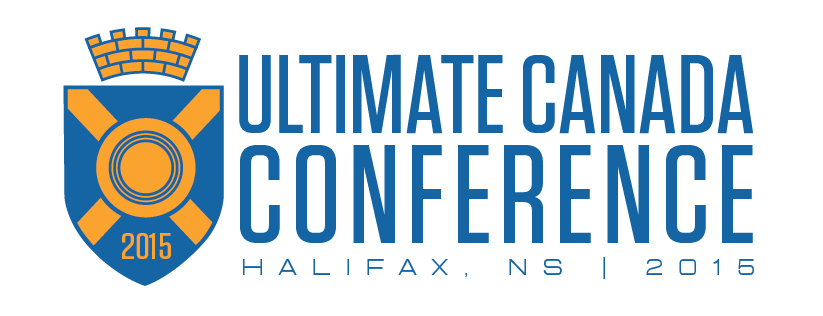
Ultimate Canada hosted their annual Conference in Halifax, Nova Scotia November 13-15, and SAVAGE made the trip across the border to attend. It was extremely inspiring to see how our neighbors to the north handle our beloved sport. Here are my seven takeaways from the Ultimate Canada Conference.
- The Ultimate organizations have huge numbers of participants. In the U.S., a small organization is maybe 50 people that come together to play a summer league. I met representatives from many organizations that referred to themselves as “small,” then found out they had more than 500 participate in their leagues. Toronto Ultimate Club alone boasts more than 3,500 members. Clearly, there are many places to play frisbee in Canada.
- The Canadian government gives thousands of dollars in grants and support to Ultimate programs. Thanks to universal healthcare in Canada, the Federal and Provincial governments allot funding for athletic programs—and that includes Ultimate. They have many grants available to programs that help keep the population active. The more exercise the population does, the fewer health issues arise. Check out the new Canadian app called Carrot Rewards.
- To increase the visibility of Ultimate, we need to partner with other disc sports. One takeaway from the conference was that Ultimate needs to start supporting and receiving support from other disc sports. Yes, this even includes Dog and Disc Clubs. With disc sports becoming more and more popular (thanks to IOC recognizing us as an Olympic sport), we need to rally all disc sports for the common good. Might I even suggest having the Dallas Dog & Disc Club be a halftime show for the new AUDL Dallas Roughnecks?
- College Ultimate is not as big in Canada as it is in the U.S. In the U.S., college ultimate reigns supreme. With over 700 colleges competing in USA Ultimate's college season, we can see why. The season extends from September to May and culminates with the College Championships on Memorial Day weekend. It's a completely different story in Canada. People still play Ultimate in college, but many are more devoted to their community team.
- With Canada being so large, one of the difficulties for programs is traveling far distances. Canada is big, and most of its major cities are spread far apart. The distance between big cities can take hours to drive or even necessitate a plane ticket. This is definitely hard for touring teams to compete against each other. To compare, think of Truck Stop out of Washington D.C. Within a six hour drive, they have a travel radius extending from New York to Raleigh to Cincinnati. Do that same radius for Vancouver and six hours doesn't even get you out of British Columbia. It's definitely easier for travel for the U.S.
- Canada has fields devoted entirely to Ultimate. My favorite takeaway from UCC was that many organizations have fields devoted solely to Ultimate. With public and private fields offered to the community, it's so much nicer to know that fields are going to be open for Ultimate. I'd love know that there was at least one devoted field site for each state to host state events.
- Canadians know much more about America than Americans know about Canada (or America). After hanging out with my new Canadian friends all weekend, my knowledge of the country was tested—and I realized that I know very little about it. Apparently, I’m also woefully ignorant of my own country. Troe Weston, League Manager of Vancouver Ultimate, challenged me to a U.S. State Capitals and Canada Province/Territory challenge. Troe was able to name 95 percent of the U.S. State Capitals, and I hit a whopping 56 percent—and we won’t even talk about the Canada challenge. Take the test to see how well you know the U.S. State Capitals.


